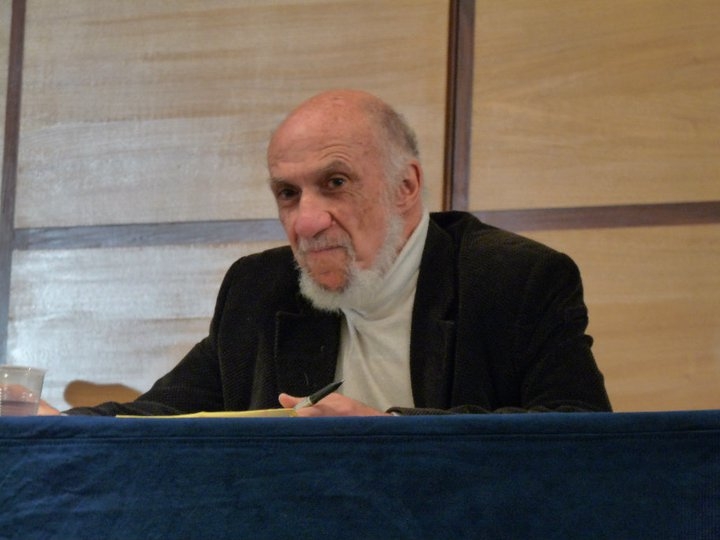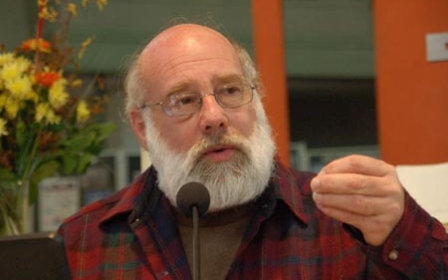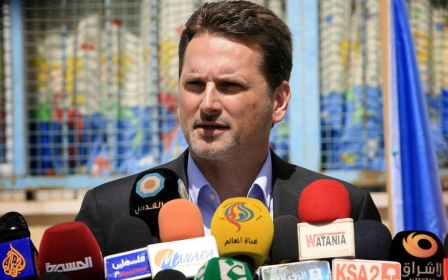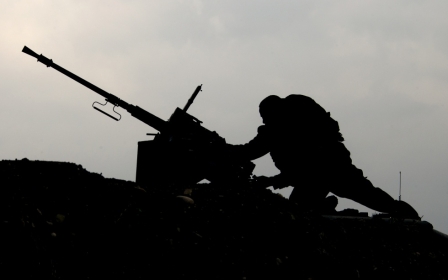Tribulations of a UN Rapporteur: A discussion with Richard Falk

The United Nations has had its controversial figures, but few can have enjoyed the distinction or ignominy of having their departure celebrated by a serving US ambassador.
When Richard Falk retired after a six year stint as Special Rapporteur on Palestine, ambassador Samantha Power went to the lengths of issuing a statement welcoming his departure as “long overdue”.
That’s the least of the brickbats thrown at him. The New York-born Jewish professor has been called an anti-Semite for his “relentless anti-Israel bias”. He does not speak, he spews according to Canada’s Foreign Affairs Minister John Baird, anti-Semitic rhetoric, for “blaming the attacks in Boston [the marathon bombing] on President Obama and the State of Israel”.
“There is a dangerous pattern to Mr Falk’s anti-Western and anti-Semitic comments" Baird said. "The United Nations should be ashamed to even be associated with such an individual […] Comments like these do a great disservice to the fundamental values of the United Nations.”
But Falk did not actually say that. What he said in a blog post on the Boston bombings was this: “As long as Tel Aviv has the compliant ear of the American political establishment those who wish for peace and justice in the world should not rest easy.”
He further added: “The American global domination project is bound to generate all kinds of resistance in the post-colonial world. In some respects the United States has been fortunate not to experience worse blowbacks, and these may yet happen, especially if there is no disposition to rethink US relations to others in the world, starting with the Middle East.”
The row over his remarks dragged in everyone, even the UN Secretary-General Ban Ki Moon, for whom he did not technically work, since the role of rapporteur is a voluntary, unpaid and independent role appointed by member states of the Human Rights Council, and not the Secretary General. Nevertheless Ban Ki Moon’s office was forced to issue a statement saying: "The Secretary-General rejects Mr Falk’s comments. The Secretary-General immediately condemned the Boston marathon bombings and he strongly believes that nothing can justify such an attack.”
The UK Mission to the UN stated that they felt Falk’s blog post - and specifically the portion quoted above - “is resonant of the longstanding anti-Semitic practice of blaming Jews [through the State of Israel by proxy] for all that is wrong in the world. This is unacceptable.”
But Power led the charge: "His publication of bizarre and insulting material has tarnished the UN's reputation and undermined the effectiveness of the Human Rights Council," she said.
Could one man do all this?
Falk today is somewhat more philosophical about the firestorms that he is the first to admit, he ignited. But he remains unapologetic.
He concedes that on occasion he has felt the need to use provocative language just to get people to sit up and pay attention.
Asked why, for instance, he once made a comparison between the Israeli treatment of Palestinians and the behaviour of the Nazis - a comment he surely knew would provoke outrage - he says those comments were made before he was special rapporteur.
Falk claims to have been “very disturbed” at the time by what was happening in Gaza and felt that he “needed to say something that would have a certain shock effect.” The blockade on Gaza was, “having extremely punishing effects on the whole population and was a form of state terrorism and collective punishment. I analogised that to the kind of collective criminality of the Nazis.” He claims it is language he did not use after he was appointed as rapporteur.
That does not mean that Falk has shied away from other provocative language though and he has stated on numerous occasions that Israeli policies towards Palestinians demonstrate “unacceptable characteristics of colonialism, apartheid and ethnic cleansing”. He has also repeatedly accused Israel of committing war crimes “of the greatest magnitude” against the besieged people of the Gaza strip. Language he stands by.
But is there more to the issue than just his oftentimes inflammatory statements?
While admitting to be a figure who speaks his mind when he sees injustice “as all intellectuals have a duty to do”, Falk says there is more to it than just his own provocative remarks.
According to Falk, “there is a concerted defamation campaign against me that has nothing to do with my true views. As a Jew myself, I’m certainly not a 'self-hating Jew', as my critics allege and I’ve certainly never had hostility towards any people, any ethnic group. So it’s a completely false allegation.”
Falk claims that the source of most of the attacks against him are initiated and led by a lobby group called UN Watch that has been “vigorous and determined to sustain the attacks”.
This is something the group itself proudly claims credit for on their website.
Regardless of who is delivering the attack, Falk says that in relation to the exact quotes he is berated for, they are almost always taken out of context and blown out of proportion.
“If you actually look at my blog posts, where they take many of these comments from, they don’t want to engage with me on the substance of my views on the Palestinian issue and they never have," says Falk. "They don’t want that dialogue because it would be a losing game for them. It’s much more appealing for them to say I’m a 9/11 conspiracy theorist, which is as false as saying I’m an anti-Semite.”
So is everyone just out to get him?
“It’s all to do with pleasing those who are very dedicated to the Zionist outlook”, Falk explains. “I explored a little bit as to why the Secretary-General [Ban Ki Moon] attacked me and was told by his chief de cabinet, that they did not do ‘due diligence’, which means they did not read my actual comments, they just read the UN Watch letter.”
Falk argues that criticism of him is often just a knee-jerk reaction by people who fall for the "smear campaign" against him conducted by UN Watch that lobbied people in office for Falk's removal.
“The Secretary-General was running for a second term,” Falk continued “and – his chief de cabinet said – ‘we were under a lot of pressure from Washington to show that we are not anti-Israeli’. So if you look deeply at these attacks by prominent people they are all based on UN Watch defamation. None of them tried to talk to me or check the original source.”
Some of the people who have attacked him in public have apparently also apologised to him in private, saying they were “instructed” to criticise Falk and to distance themselves from him.
Falk added that the behaviour directed against him by groups like UN Watch has been “quite intimidating.”
“This period has taught me what defamation is," says Falk. "Because they never once tried to engage the substance of what I was actually saying. If you look at their website, they are completely preoccupied with trying to protect Israel against criticism.”
Asked if he has any regrets about his time as rapporteur, considering all of the personal attacks against him, he said he did not because, “offsetting the defamation campaign has been what I would call almost the opposite experience amongst progressive people and among Palestinians themselves.”
As well as being the recipient of a lot of very visible and visceral hatred Falk says he’s also been: “the recipient of love and friendship and support beyond what I deserve. That’s meant a lot to me. It’s misleading in a way to think if you try to take on Israel you will suffer because you also are the beneficiary of what it means to act with some integrity in solidarity with a victimised and vulnerable people”
Furthermore, he added, “it also gave me the opportunity, I think, to have some effect on an issue I’ve cared deeply about for a long time.”
Despite all of the political wrangling and public bickering, Falk clearly stands by his work including the two comprehensive reports delivered each year, to both the Human Rights Council and the General Assembly.
Love him or loath him, Falk has certainly left an indelible mark on people’s minds.
Some may see him as having made himself a decoy, unnecessarily detracting attention away from the Palestinians and wittingly or unwittingly drawing it upon himself, but others will always look upon him more favourably.
For his part Falk steps away from the position of rapporteur with a “sense of sadness” that things on the ground have not improved for Palestinians, in terms of the mass arrests, the siege on Gaza, the separation wall and myriad other obstacles, but he also leaves with a sense of humble satisfaction in the ways in which things have improved.
Falk sees the Palestinian cause as having gained legitimacy in the international community and sees it to be winning in the court of public opinion globally. Despite of all of the controversies, and personal attacks, he sees that improvement in some “very small way” as being down to the work he, and others like him, have been doing to draw attention to the issues on the ground. In that regard at the very least, he has no regrets.
New MEE newsletter: Jerusalem Dispatch
Sign up to get the latest insights and analysis on Israel-Palestine, alongside Turkey Unpacked and other MEE newsletters
Middle East Eye delivers independent and unrivalled coverage and analysis of the Middle East, North Africa and beyond. To learn more about republishing this content and the associated fees, please fill out this form. More about MEE can be found here.




